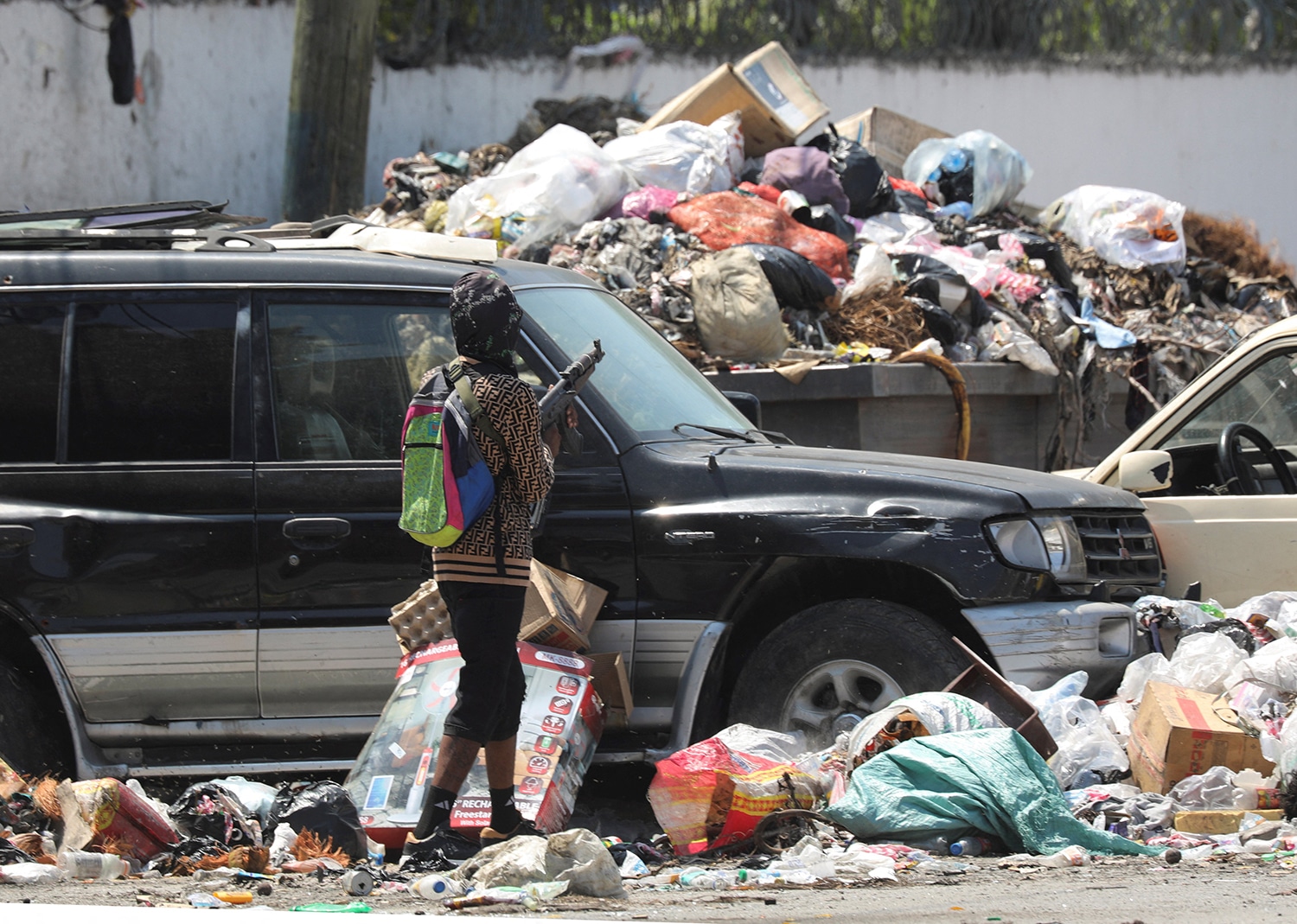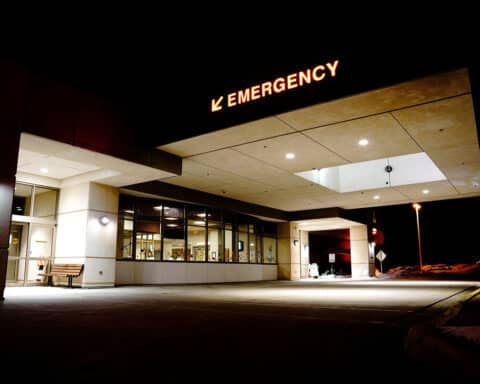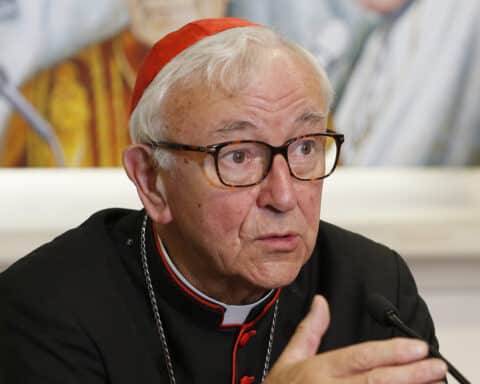SÃO PAULO, Brazil (OSV News) — Amid the worst security crisis in Haiti in several years — one that has been particularly hard for church members — Prime Minister Ariel Henry resigned after weeks of mounting chaos in the Caribbean nation.
The decision came after an escalation of violence made daily life almost impossible in Haiti, with at least 80% of the capital city Port-au-Prince in the hands of gangs and more than 300,000 displaced citizens.
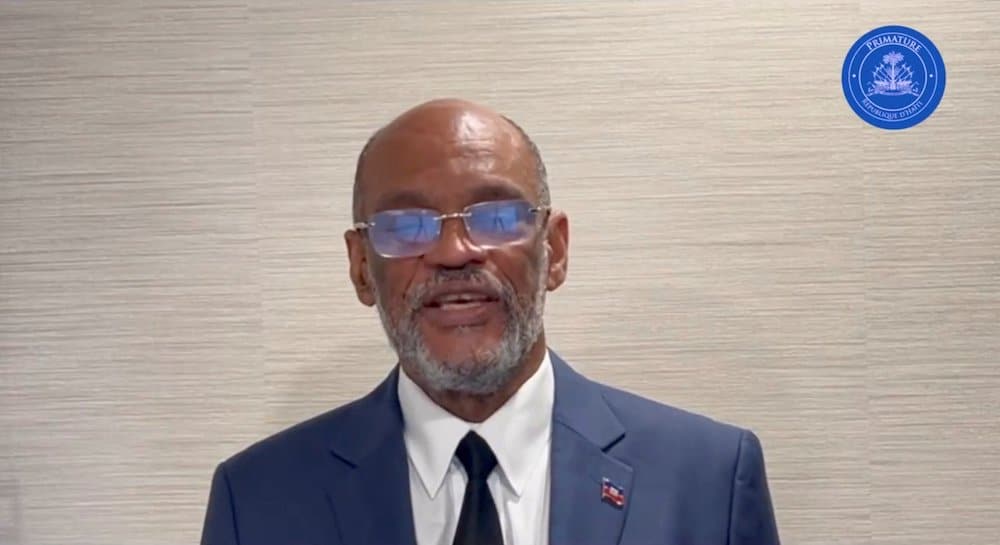
Henry said in a video address late March 11 that his government would leave power after the establishment of a transitional council. “Haiti needs peace. Haiti needs stability,” he said.
Haiti stands on the brink of civil war, according to Archbishop Max Leroy Mésidor of Port-au-Prince, president of the Haitian bishops’ conference.
Archbishop Mésidor conveyed to the pontifical charity Aid to the Church in Need that armed gangs operate with alarming organization, overpowering the efforts of law enforcement. This has severely hampered the Church’s charitable activities, exacerbating a dire situation, the prelate said.
Criminal groups have been coordinating attacks on police stations and were able to release more than 3,000 inmates from a penal institution over the past weeks, including murderers and kidnappers. Some gang lords, including former policeman and most-feared gang leader Jimmy “Barbecue” Cherizier, who heads an alliance of nine bands known as G9, affirmed that their goal was to provoke the prime minister’s resignation.
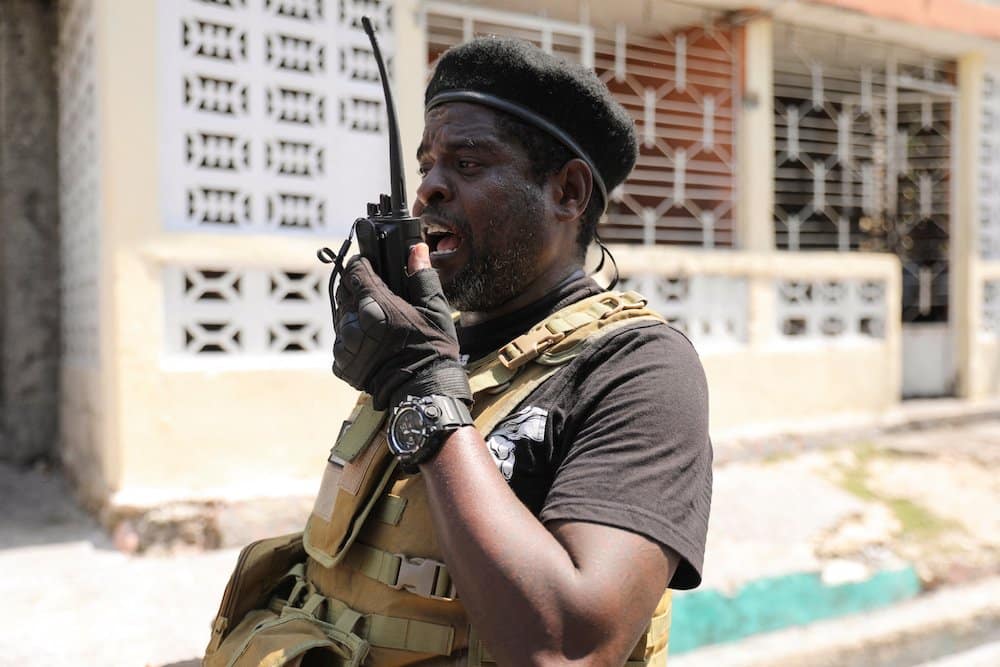
Church targeted
Henry took office after President Jovenel Moïse was assassinated in July 2021. Gangs have been rapidly growing and expanding their reach in Haiti’s society since then, adding to an already chaotic situation in the North American continent’s poorest country.
The Church has been trying to assist the poor, with several social programs in working-class neighborhoods. But violence has made it impossible for many missionaries to go on. In 2023, for instance, a Brazilian inter-congregational mission established 13 years ago had to be closed after armed men invaded its headquarters.
Catholic missionaries have been among the major targets of kidnappers, something that has spread fear in the Haitian clergy.
In 2024, a large number of priests and sisters have already been kidnapped. Gang members claim the Church and Catholic organizations will generally pay a ransom for the abducted missionaries, so they have become the preferred targets for abduction.
The most recent kidnappings include the abduction in January of six nuns, who were released after five days, but a driver of the bus they were on when they were taken was killed. On Feb. 23, a group of six members of the Congregation of the Brothers of the Sacred Heart were taken by armed men along with a teacher as they went to John XXIII School where they work; the school is run by their congregation. On March 5, three religious sisters, members of the Sisters of St. Joseph of Cluny, were kidnapped at the orphanage they ran. The institution is located in an area dominated by a gang named 400 Mawozo.
The three sisters were released the following day and are now safe at home. Among the six Sacred Heart brothers, four have been freed, besides the lay teacher, according to a statement published by the congregation on March 10.
“Two brothers remain in captivity. We’re negotiating with the criminals,” Father Gilbert Peltrop, secretary-general of the Conference of Religious of Haiti, told OSV News.
Father Peltrop said that the three Sisters of St. Joseph of Cluny were released without a ransom. Commonly, gangs ask for large sums of money in exchange for the abducted victims, something that requires extended negotiations till more viable amounts are agreed upon.
According to Salesian Father Morachel Bonhomme, who heads the Conference of Religious of Haiti, the current scenario for clergy members in the country is extremely hard.
Plea for international assistance
“We try to be cautious, but we continue to be present. We have a mission to accomplish. Our mission is to accompany the poor, the homeless, the neediest in society, even when it’s hard to do it,” Father Bonhomme told OSV News.
Several analysts, including members of the Church, affirm that international assistance is mandatory to deal with the current crisis in Haiti.
The United Nations decided to send a Multinational Security Support mission to the country. The peace force would be led by Kenya, which agreed to deploy 1,000 police officers. But the measure is being questioned in the Kenyan judiciary system and it is not yet clear whether the African country will be able to lead the mission.
On March 7, the Latin American Justice and Peace Ecclesial Network released a document demanding “the international authorities and the global community not to remain indifferent to the sufferings of the poorest and weakest among the dear Haitian people.” The letter asked for an “urgent intervention of the international peace forces.”
“We strongly believe in the democratic way as a trustworthy manifestation of the peoples’ will to attain Justice and Peace in all nations of Latin America and the Caribbean, and especially in Haiti. We also believe in the need of a legitimate and active political authority,” the declaration read, adding that its signatories would pray for “the fruits of dialogue, reconciliation, and peace in Haiti.”
U.S. prelates have urged prayers for Haiti, including Bishop Robert J. Brennan of Brooklyn, New York, who has invited the faithful of the diocese to join him in praying for the Caribbean nation at an evening Mass March 18 at Holy Innocents Church in Flatbush. The Church is that day’s stop on the Diocesan Lenten Pilgrimage.
“Please pray for peace in Haiti and a peaceful resolution to this political crisis as we stand in solidarity with so many here in Brooklyn and in Queens who are concerned about loved ones in Haiti,” said Bishop Brennan.

